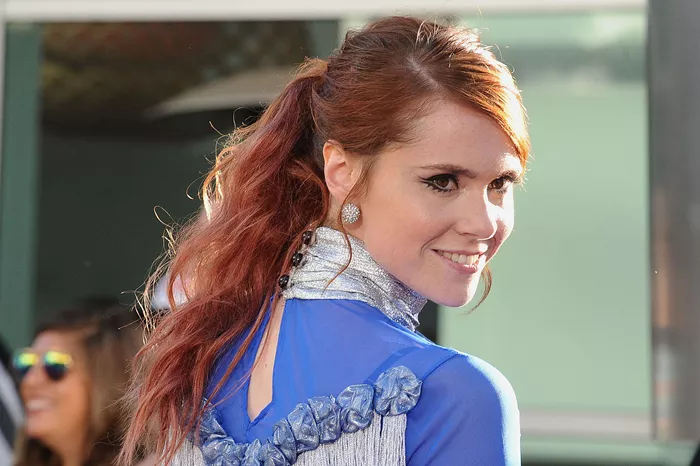In a world where music has become more accessible than ever before, there’s an ugly truth hiding behind the sparkles and streams — and Kate Nash’s recent decision to turn to OnlyFans sheds light on just how bad things have gotten for independent artists.
A few weeks ago, the British singer-songwriter made headlines when it was revealed that she had begun posting suggestive images on the subscription service OnlyFans. Her goal? To raise money for her concert tour, a creative yet desperate measure to ensure “good wages and safe means of travel for my band and crew.” Nash humorously dubbed her page “Butts 4 Tour Buses,” making light of the situation, but behind the humor, a sobering reality for many musicians lurked.
Nash’s comments were filled with a mix of frustration and dark humor as she explained the financial challenges of touring. “I lose money on every show,” she told Rolling Stone. The reality of touring in 2024 — with skyrocketing costs for production, travel, and crew — is so grim that Nash finds herself at a loss for how to sustain her career without relying on outside income streams like OnlyFans. For context, her average concert costs roughly $10,000 to produce. Yet ticket sales, which are often further diminished by “dynamic pricing” that fluctuates based on demand, rarely come close to covering these expenses.
This isn’t an isolated case. A report from Business Insider recently lamented the changing face of the music industry, where most artists find themselves struggling to make a living, despite streaming platforms such as Spotify and Apple Music raking in billions of dollars. Streaming, which accounts for over 80% of recorded music revenue in the U.S., has become a double-edged sword. While platforms like Spotify have provided a way for musicians to reach global audiences, they pay artists a pittance per stream. As of 2023, Spotify’s rate hovers around $0.003 per stream, which means artists like Nash are earning fractions of pennies for their hard work, making it increasingly impossible to rely on streaming alone.
In fact, Nash and Lily Allen’s decisions to turn to OnlyFans highlight a larger, systemic issue within the music industry — and within the broader creative economy. The current landscape, dominated by corporate giants like Universal Music Group, Sony, and Warner Music Group, leaves little room for the struggling artist. Despite the $30 billion in revenue earned by these corporations in 2023, the majority of that money doesn’t trickle down to the performers themselves. Top-tier acts, like Taylor Swift, are exceptions in this broken system.
The system itself is riddled with inequalities that have been worsened by the rise of streaming platforms and the commercialization of music. A study from Billboard in 2022 revealed that songwriters received just 9.4 cents for every dollar in royalties generated from streaming services. Meanwhile, the cost of creating and recording an album, which can exceed $300,000, eliminates most independent artists from ever being able to afford to record in the first place.
The problem is further compounded by rising costs across the board. Everything from bus rentals to hotel rooms to hiring a sound engineer has ballooned in price, with some venues even taking as much as 40% of artists’ merchandise sales. For many artists, including Nash, these expenses often exceed their potential earnings, leaving them with little choice but to make extreme decisions just to keep the music going.
What kind of society drives its artists to turn to platforms like OnlyFans? One that marginalizes creative professionals, commodifies their work, and turns a blind eye to the struggle they face. This isn’t just about Nash’s financial woes — it’s about the entire ecosystem in which artists find themselves stuck. As Nash aptly put it, the industry is “broken” and “a complete failure.” The current system serves the interests of the ultra-wealthy, leaving the artists who fuel the culture of the music industry on the brink of collapse.
The dire state of the music industry is a stark reminder of the broader economic and cultural issues that affect not only musicians but all creative professionals. As inequality grows and the corporate monopolies tighten their grip, the very foundation of what it means to be a musician — or an artist in any field — is at risk of being upended. The sacrifices made by artists like Kate Nash to continue their craft should not be celebrated as “funny” or “quirky” but recognized as a reflection of a system that has failed them.
As we move forward, the question remains: What kind of society do we want to build? One that supports its artists, or one that forces them to resort to desperate measures for survival?
Read more:

